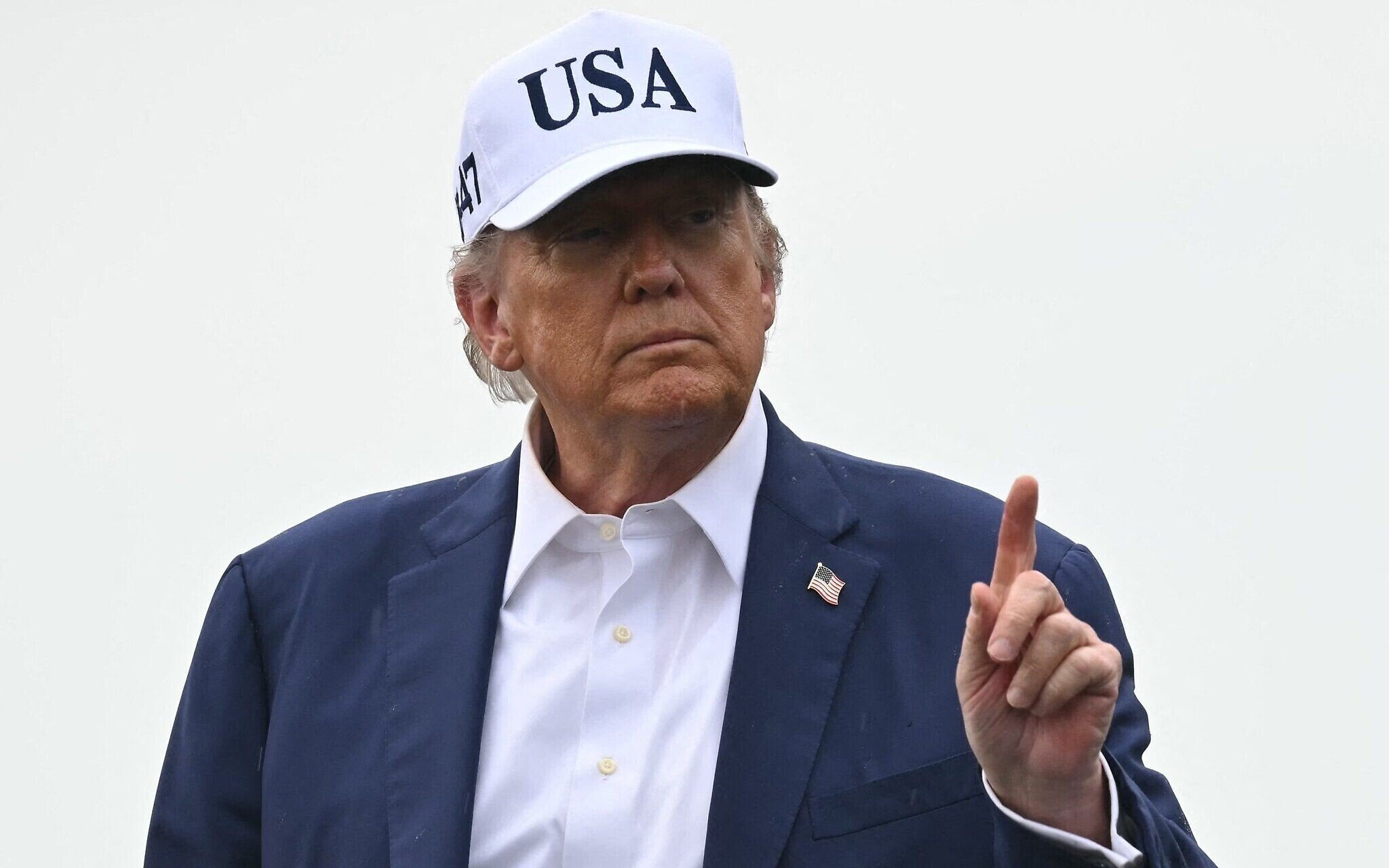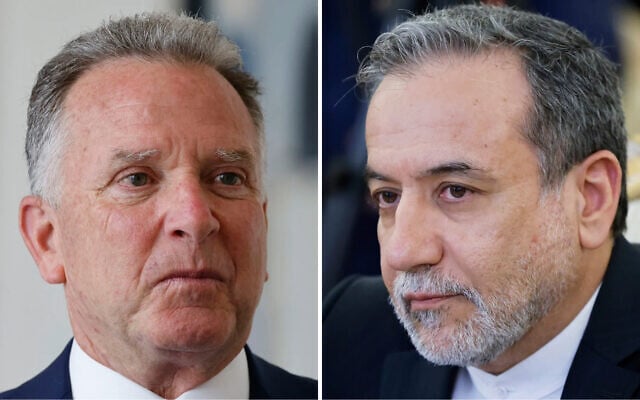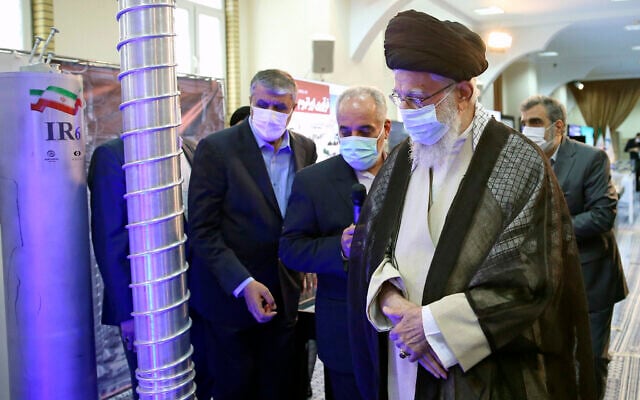



US President Donald Trump asserted on Friday that Iran will not be allowed to enrich uranium, despite reports that the deal Washington has proposed would allow Tehran to do so at low levels for a temporary period.
“They won’t be enriching. If they enrich, then we’re going to have to do it the other way,” Trump told reporters, hinting at a military strike against Iran’s nuclear sites if a deal does not pan out, while reiterating that a diplomatic agreement is his preferred option.
Since talks between the Trump administration and the Islamic Republic began, the US has not been entirely consistent on whether to allow Iran to enrich uranium — to the chagrin of Israeli officials, who insist on no enrichment — with some statements indicating openness to a deal like the one inked by the Obama administration in 2015 that would allow low-level enrichment and, for as long as the deal was in effect, place it under international inspection.
Prime Minister Benjamin Netanyahu has called for Iran’s enrichment capabilities and nuclear facilities to be fully dismantled.
However, Israel has assured the White House that it won’t launch an attack on Iran’s nuclear facilities unless Trump signals that the ongoing negotiations with Tehran have failed, Axios reported Thursday, citing two Israeli officials familiar with the matter.
One official said it could take several months before that happened, and Iran would try to prevent the talks from collapsing.
Following five rounds of negotiations, the US last week presented Iran with a proposal for a deal that would reportedly restrict the Islamic Republic’s uranium enrichment without halting it entirely. Iran’s Supreme Leader, Ayatollah Ali Khamenei, rejected the proposal on Wednesday.
The supreme leader insisted Iran would not abandon its uranium enrichment program, saying that without enrichment its nuclear program was “useless,” and asking of the US: “Who are you to tell us whether we should have a nuclear program or not?”
The rejected proposal, as laid out in an Axios report on Monday, would have allowed Iran to retain low levels of enrichment for civilian uses like nuclear medicine and commercial power if it agreed to shut down its heavily protected underground sites for a period of time.
The deal would have prevented Iran from conducting new research and developing centrifuges. It would have also required Iran to stop enriching uranium to the higher levels it currently reaches and to mothball its underground enrichment facilities for a to-be-agreed-upon period.
However, Iran would be able to keep enriching in above-ground facilities to 3 percent, the level needed to fuel a civilian nuclear reactor.
The agreement calls for the eventual creation of a regional consortium to handle uranium enrichment for civilian uses — a plan first studied more than a decade ago in negotiations that led to the 2015 Iran nuclear deal. Trump withdrew the US from that deal during his first term as president.
The consortium would in theory include the US, Iran and countries such as Saudi Arabia, Qatar, and possibly Turkey, with its enrichment activity monitored by International Atomic Energy Agency (IAEA) inspectors, according to Axios.
Iran, which avowedly seeks Israel’s destruction, has consistently denied seeking to acquire nuclear weapons. However, it has been enriching uranium to levels that have no peaceful application, has obstructed international inspectors from checking its nuclear facilities and expanded its ballistic missile capabilities, and its officials have increasingly warned that they could pursue the bomb.
It has amassed enough uranium enriched to 60% — a short step away from weapons grade — for nine bombs, and has carried out secret nuclear activities with material not declared to the UN’s IAEA nuclear watchdog at three locations that have long been under investigation, the IAEA reported last week.
Iran ordered from China large quantities of materials for producing ballistic missiles as part of an effort to reestablish itself and its proxies militarily, The Wall Street Journal reported on Thursday.
The material is reportedly expected to arrive in Iran in the coming months. The Journal said the shipment had been agreed upon “months ago, likely before” Trump’s announcement in March that he had proposed nuclear talks to Khamenei.


